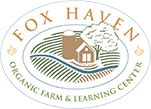Foragers 2 September: Spores, Spawn, Fruit and Folly by Emma Williams
 This month’s post is about mushrooms and September’s fascinating presentation from Jared Urchek of Vital Traditions for the Foragers 2 group. At first, I was excited to write about this topic because I’m enamored with mushrooms. I keep pictures of the mushrooms that I’ve grown from Humble Roots kits on my phone:
This month’s post is about mushrooms and September’s fascinating presentation from Jared Urchek of Vital Traditions for the Foragers 2 group. At first, I was excited to write about this topic because I’m enamored with mushrooms. I keep pictures of the mushrooms that I’ve grown from Humble Roots kits on my phone:
Then I became intimidated by the topic. There’s a lot of research into the benefits of mushrooms, but I’m not qualified to summarize it. My social media feed is cluttered with wellness products that extol – but also perhaps exaggerate? – the health benefits of mushrooms in the interest of marketing. So I’ve decided to just keep it simple and share some resources for if you want to grow mushrooms, add them to the ecosystem, or learn a song about them.

Here’s what I see as the benefits of mushrooms to people:
- Wellness-promoting benefits – In general mushrooms are high in antioxidants, may help lower cholesterol, have lots of vitamins and minerals, and are a source of prebiotics. Specific types of mushrooms have been used as traditional medicine for thousands of years, and some – such as psychedelic mushrooms – are being rediscovered by Western medicine.
- Substituting for other foods – Most Americans would benefit themselves and the planet if they ate less meat, and mushrooms are a great meat replacement. (By the way, I recently made this lion’s mane dish – very yummy.) There are also a lot of companies selling mushroom coffee, as the ads in my Instagram feed are constantly reminding me, to help people reduce their caffeine intake.
- Bringing whimsy and delight –Those who forage for mushrooms experience the thrill of fungal hide-and-seek. But even those of us who grow mushrooms in a bag on our desk can be thrilled by how they grow slowly and then surprisingly quickly, in undulating shapes. They remind us of gnomes and fairies and the looping cycles of death and rebirth. Here’s a charming song and puppet show about how mushrooms “turn a grave into a garden” and work like magic:
Using mushrooms to clean up the environment is called mycoremediation and operates through three talents of mushrooms:
- Removing extra nutrients, such as nitrates, to keep them out of the water
- Filtering out microbes like bacteria
- Accumulating toxic waste
 Here are two examples of how we applied these ideas at Fox Haven:
Here are two examples of how we applied these ideas at Fox Haven:
- There’s an ongoing project to plant oyster mushrooms, harvest them, and then put the remaining spawn (meaning the mycelium network from which the mushrooms grow) into a burlap sack along with straw and then placing this into the stream. The sack performs the first and second functions mentioned above. Jared noted that this is a bit of folly because it would probably need to be performed at a greater scale and for a longer duration to have a big impact on water quality.
- There’s an area on the Fox Haven grounds that leaks oil, suggesting that an old oil drum was once buried there. There’s an ongoing project to plant winecap mushrooms in that spot, to perform the third task above. This involved layering wood chips with winecap mushroom spawn.
You can learn more about mycoremediation from Paul Stamets’ TED talk.

Here’s a photo of the oyster mushroom spawn and straw prepared to fruit.
You may notice from this photo and from my pictures above that mushrooms are often grown in single-use plastic bags. However, the internet is helping me find alternatives. From this YouTube video, I learned how to regrow oyster mushrooms from stems using a five-gallon plastic bucket (still plastic, but at least reusable.)

Written by Emma Williams
